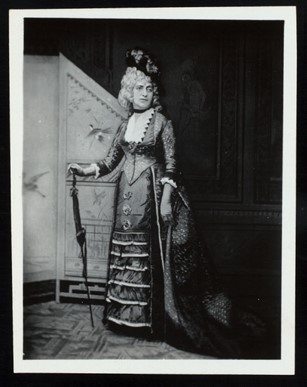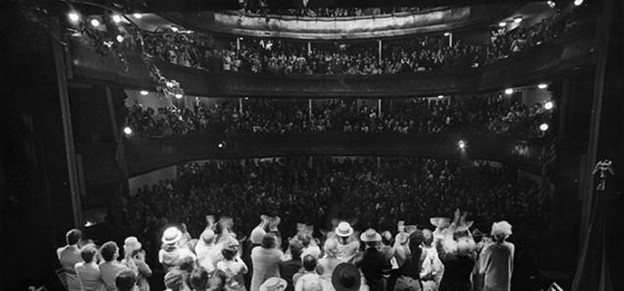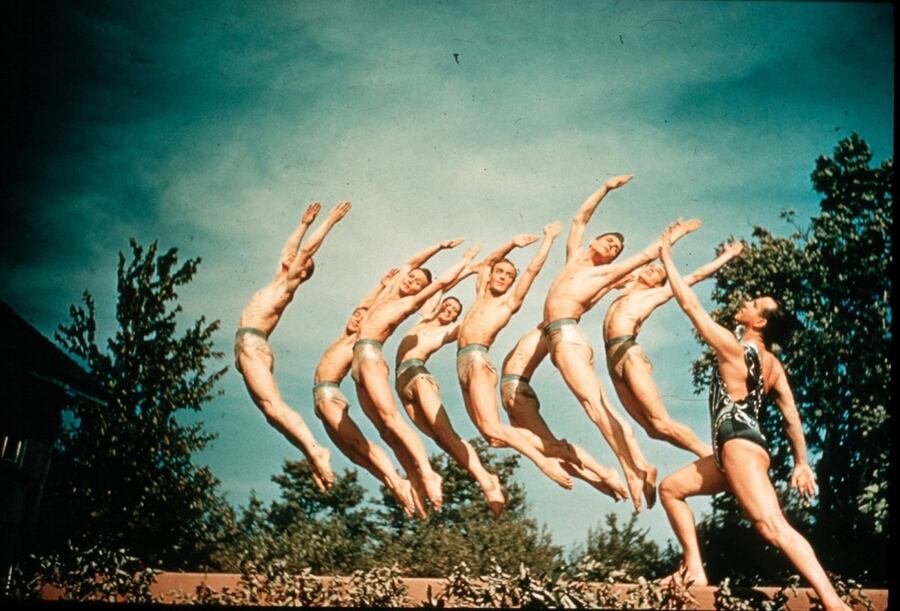March 1793 (230 years ago)

Following a series of pro- and anti-theatre riots in Boston, Mass., the state legislature proposed a bill in March 1793 that would repeal the 1750 prohibition on theatrical performance and Gov. John Hancock begrudgingly promised to sign it. The year before, a small illegal theatre in Boston called New Exhibition Room (later called the Board Alley Theatre) had opened. This company staged musical scenes, pantomimes, and advertised “moral lectures”, which largely were scripted staged performance masked as social discourses. In December 1792, during an Exhibition Room production of School for Scandal, the theatre’s manager, Joseph Harper, was arrested onstage for violating the 1750 law. The public arrest kicked off fierce citizen advocacy for revocation of the longstanding law. With Gov. Hancock’s vow to ratify the bill, theatre began again in earnest. The law, however, would never be signed by Hancock. In fact, the 1750 law would not be repealed until 1806 under Gov. Caleb Strong.
March 1828 (195 years ago)

At 8 years of age, Louisa Lane took the stage at New York’s Bowery Theater in the March 1828 production of The Spoiled Child. It was her first time performing on a New York stage, and she swiftly built a robust acting career in the city and in Philadelphia, proving particularly gifted at comedic performance. Louisa married three times, the last time to actor and theatre manager John Drew. After John was appointed the manager of Philadelphia’s Arch Street Theatre, it became clear to the theate’s stockholders that he was incapable of successfully running the company, as he was too distracted by his own acting career. Louisa took over the management of the theatre in 1861, becoming one of the first women to manage a major theate in the U.S. The stockholders took to calling the theatre the “Mrs. John Drew’s Arch Street Theatre.” John Drew would abruptly die in 1862, and Louisa ran the theatre for about 30 more years, all while acting and raising a family on her own.
March 1933 (90 years ago)
Modern dance pioneer Ted Shawn performed with his all-male dance troupe for the first time at the Boston Repertory Theatre in Massachusetts. Having recruited many of his dancers from a pool of athletes at Springfield College, where he taught, Shawn developed the troupe over the spring and early summer of 1933. In July of that year, Shawn and his young male troupe held their first performance at his newly purchased farm in Lee, Mass. The farm would later be known as Jacob’s Pillow and play host to the annual summer Jacob’s Pillow Dance Festival.

March 1973 (50 years ago)
The Richard Nixon administration announced that Washington, D.C.’s Arena Stage would tour the Soviet Union as part of the Soviet-American exchange program, making it the first regional theatre to present work behind the Iron Curtain. Under Arena Stage producing director and founder Zelda Fichandler, the company traveled to Moscow and St. Petersburg to perform Jerome Lawrence and Robert Edwin Lee’s Inherit the Wind and Thornton Wilder’s Our Town. Russian audiences welcomed the productions with uproarious praise, in what associate director Alan Schneider called “a love affair.” The theatre planned a return engagement to Russia in 1989 but were forced to cancel due to lack of funding.
March 1998 (25 years ago)
Cherríe Moraga’s play Giving Up the Ghost began a run at the Centro Cultural de La Raza in San Diego, Calif., on March 13, 1998. The work was the first co-production of the Centro Cultural, housed in a large, reclaimed water tank in Balboa Park, with the Diversionary Theatre, one of the oldest LGBT+ theatres in the United States. Moraga’s poetic play focuses on three Chicanas of different ages and sexualities reconciling their sexual selves and other identities within a patriarchal society. Giving Up the Ghost was also Moraga’s first published theatrical work.



